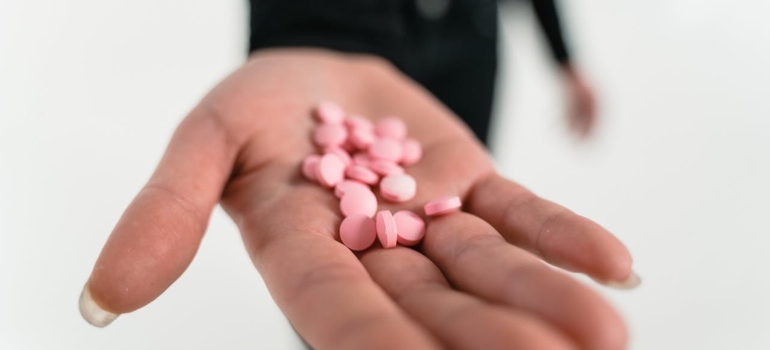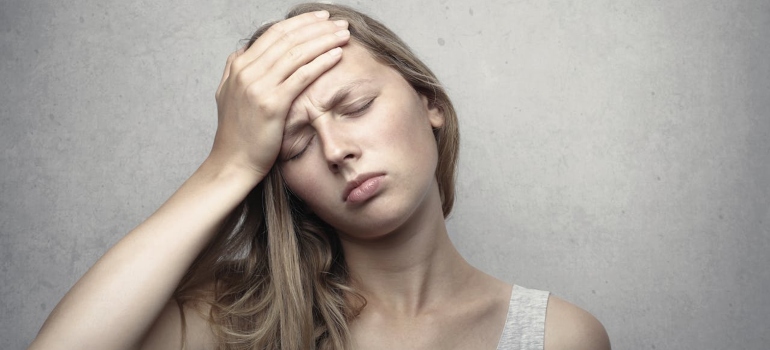Substance abuse and addiction can affect anyone, but women often face unique challenges during rehab. Understanding these gender-specific challenges is essential for effective treatment. Women are more likely to have histories of trauma and mental health issues, and they often juggle caregiving responsibilities while in rehab. Additionally, social stigma and fear of losing custody of children can complicate their recovery journey. This article aims to inform and support women considering rehab by shedding light on these unique challenges and offering practical solutions. By addressing the emotional, psychological, and physical aspects of addiction, tailored treatments, and creating supportive environments, rehabs in WV and other locations can provide women with the tools they need for successful recovery. Recognizing and addressing these unique challenges women encounter in rehab can empower women to seek help and build a healthier future.
Understanding the Gender Gap in Substance Abuse
Men and women experience substance abuse in various ways, which leads to a clear gender difference in addiction and treatment requirements. Although historically, men have been more likely to abuse substances, current statistics show that the gap is closing as more women use narcotics for a variety of reasons. When dealing with stress, trauma, or mental health conditions like anxiety and depression, women frequently turn to drugs or alcohol as coping techniques. Relationship problems, gender norms, and cultural pressures might significantly trigger women. Women are more likely than men to experience stigma and condemnation for their drug use, which can worsen feelings of shame and guilt and make addictions more entrenched.

Treatment for these particular stresses must be tailored to the individual. Empirical evidence indicates that women are more vulnerable to relapse as a result of emotional and societal influences. Comprehending these elements is essential to creating efficacious rehabilitation regimens tailored to the unique requirements of women. Rehabs can provide more specialized and efficient treatment choices by addressing the unique pressures and triggers that lead to substance usage among women, hence closing the gender gap in addiction recovery. Understanding these distinctions and adjusting interventions appropriately can greatly influence women in recovery.
Emotional and Psychological Challenges
Women in rehab often face profound emotional and psychological challenges that can complicate their recovery journey. A significant number of women battling addiction have histories of trauma and abuse, which can lead to higher rates of co-occurring mental health disorders such as depression, anxiety, and PTSD. These issues are not just secondary complications; they are central to the addiction experience for many women. Social stigma and guilt surrounding addiction can further deepen these emotional wounds, making it even harder for women to seek help and stay committed to recovery.
Addressing these challenges requires a comprehensive approach that includes traditional therapies and holistic therapy for addiction. Trauma-informed care is essential, as it ensures that treatment addresses the root causes of addiction rather than just the symptoms. Support groups specifically for women can provide a safe space to share experiences and foster healing. Additionally, individualized counseling can help women navigate their emotional and psychological struggles, building resilience and coping strategies. By acknowledging and addressing the unique emotional and psychological needs of women in rehab, treatment programs can significantly improve their chances of long-term recovery and emotional well-being. This holistic approach ensures that women receive the comprehensive care they need to heal and thrive.

Social and Familial Responsibilities
Women in treatment frequently struggle to strike a balance between their social and familial obligations and their rehabilitation. Many women are primary caregivers, responsible for children, elderly parents, or other family members. This dual burden can make committing to a rehab program particularly challenging. The fear of losing custody of their children can add immense stress, leading some women to avoid seeking treatment altogether. The strain of addiction also affects relationships and social support systems, causing rifts with partners, family, and friends. These disrupted relationships can hinder recovery, as a strong support system is crucial for successful rehabilitation.
Family therapy for addiction can play a pivotal role in this context. It helps repair and strengthen family bonds, providing a supportive environment for the woman in rehab. Family therapy sessions allow family members to understand the challenges of addiction and learn how to support their loved ones effectively. Support groups for families also offer a platform to share experiences and gain insights into managing the complex dynamics of addiction and recovery. Women can better handle their social and familial responsibilities by including family therapy and support groups in treatment programs. This helps them build a more secure and encouraging basis for their recovery path.
Physical Health Considerations
Physical health considerations are crucial in the rehab process for women, as addiction impacts them differently than men. For instance, women often experience more severe health complications due to substance abuse, including faster progression to addiction and higher rates of organ damage. Additionally, reproductive health issues, such as menstrual irregularities and complications during pregnancy, require specialized medical attention. Moreover, hormonal fluctuations can influence both addiction patterns and recovery experiences. Therefore, it is essential to have comprehensive medical care in rehab programs tailored to address these unique health needs. Regular check-ups and integrated health services ensure that women receive the necessary care for their physical well-being. Rehab facilities are able to design more efficient and encouraging treatment programs by giving these health factors priority. Moreover, treating physical health conditions in addition to addiction treatment can greatly enhance women’s overall recovery results.

Barriers to Seeking Treatment
There are various obstacles for women to seek addiction therapy. Two of the biggest challenges are the lack of insurance and financial limitations. Not everyone has the financial means for rehab because it might be costly. Many women also worry about being judged and facing societal consequences. Addiction is stigmatized in ways that can be very overpowering. It keeps people from requesting assistance. Moreover, women-only recovery clinics are frequently hard to come by. A critical service that many facilities do not provide for women is gender-specific care. Their inability to receive individualized care may deter people from getting assistance. Their fear of losing child custody is another major obstacle. Women are concerned about the emotional and legal fallout for their family.
Thus, it is imperative to find answers to these obstacles. Support for women’s rehabilitation programs, sliding scale fees, and scholarships are all helpful. Programs with a specific focus, like drug rehab for young adults, might also offer a helping hand. More women will be able to get the therapy they require if these obstacles are removed. It is vital to encourage women to ask for support without worrying about being judged. Offering customized and reasonably priced treatment alternatives can have a big impact. Therefore, fostering a more welcoming and encouraging rehab environment is essential for women’s recovery.
The Importance of a Supportive Environment
Women in recovery must have a supportive atmosphere. It offers warmth and safety, which are necessary for healing. With no outside distractions, ladies may concentrate on their recovery in a caring rehab environment. Support groups and therapies tailored to a person’s gender foster a feeling of community. Women can assist one another and exchange experiences in these gatherings. Specialized medicines also take into account the particular requirements of women. In this case, individual therapy for addiction is essential. It provides tailored treatment, addressing the unique needs of every woman. Effective treatment plans must involve professional assistance. Counselors and therapists offer direction and encouragement all through the healing process. Employees who have received trauma-informed care training also work in a supportive atmosphere. This method takes into consideration the trauma that many women have gone through. It helps in building trust and promoting healing.
Furthermore, a supportive setting fosters resilience and empowerment. Women are encouraged to take control of their recovery journey. Rehab facilities can greatly enhance the outcomes for women by establishing a secure and caring environment. Such environments help women build a strong foundation for long-term recovery. Supportive settings are not just beneficial; they are essential for the successful rehabilitation of women. Ensuring a supportive environment in rehab is a critical step in addressing the unique challenges women face in addiction recovery.

Tailored Treatment Approaches
Tailored treatment approaches for women are essential for effective rehab. Holistic and trauma-informed care are at the forefront of these methods. Holistic care addresses the mind, body, and spirit, ensuring comprehensive healing. This approach includes therapies like yoga, meditation, and nutrition counseling. Trauma-informed care, on the other hand, recognizes the impact of past trauma on addiction. It creates a safe space for women to process and heal from their experiences. Integrating mental health services with addiction treatment is also crucial. Many women in rehab have co-occurring mental health disorders. Coordinated care ensures that both issues are addressed simultaneously.
Group therapy for addiction plays a significant role in these tailored approaches. Women benefit from sharing their stories and supporting each other. This form of therapy builds a sense of community and reduces feelings of isolation. Additionally, complementary therapies like art therapy and mindfulness can enhance the recovery process. These therapies provide creative outlets and coping strategies. They help women express emotions and manage stress effectively. Rehabilitation facilities can meet the special requirements of women by implementing these customized treatment plans. The likelihood of an effective, long-term recovery is increased by this all-encompassing care approach. Customized strategies guarantee that ladies obtain the assistance and care required for them to flourish.
Seeking Professional Help
For women thinking about treatment, getting expert assistance is an essential first step. Selecting the best treatment facility needs thorough investigation and thought. It’s critical to seek out establishments that recognize the special demands of women and provide programs tailored to their needs. When selecting a rehab facility, find out about the kinds of therapies that are given, the staff’s credentials, and the support services that are provided. Make sure the facility offers complete care, including holistic therapies, medical care, and mental health services.
Ongoing support and aftercare are also vital components of successful recovery. Look for rehab centers that offer robust aftercare programs, such as support groups, counseling, and follow-up services. These programs help women maintain their sobriety and navigate the challenges of post-rehab life. It’s essential to feel comfortable and safe in the chosen rehab center, as a supportive environment greatly enhances the recovery process. Professional help doesn’t end with rehab; continuous support is crucial for long-term success.
Women who seek professional assistance can obtain the tools and assistance required for a successful recovery. The best chance for an effective, long-lasting recovery is found in rehab facilities with customized programs and continuous care. Making this change is liberating and can result in a happier, healthier life.

Unique Challenges Women Encounter in Rehab
Understanding and addressing the unique challenges women encounter in rehab is crucial for their successful recovery. Women face distinct emotional, psychological, social, and physical hurdles that require specialized treatment approaches. By acknowledging these challenges, rehab centers can provide tailored care that meets the specific needs of women. Holistic and trauma-informed therapies, along with gender-specific support groups and comprehensive medical care, are essential components of effective rehab programs. Encouraging women to seek professional help and offering ongoing support and aftercare can significantly enhance their chances of long-term recovery. Women need to know that they are not alone and that help is available. By focusing on these unique needs, rehab centers can empower women to overcome addiction and build healthier, more fulfilling lives. The journey to recovery is challenging, but with the right support and treatment, women can achieve lasting sobriety and well-being.



